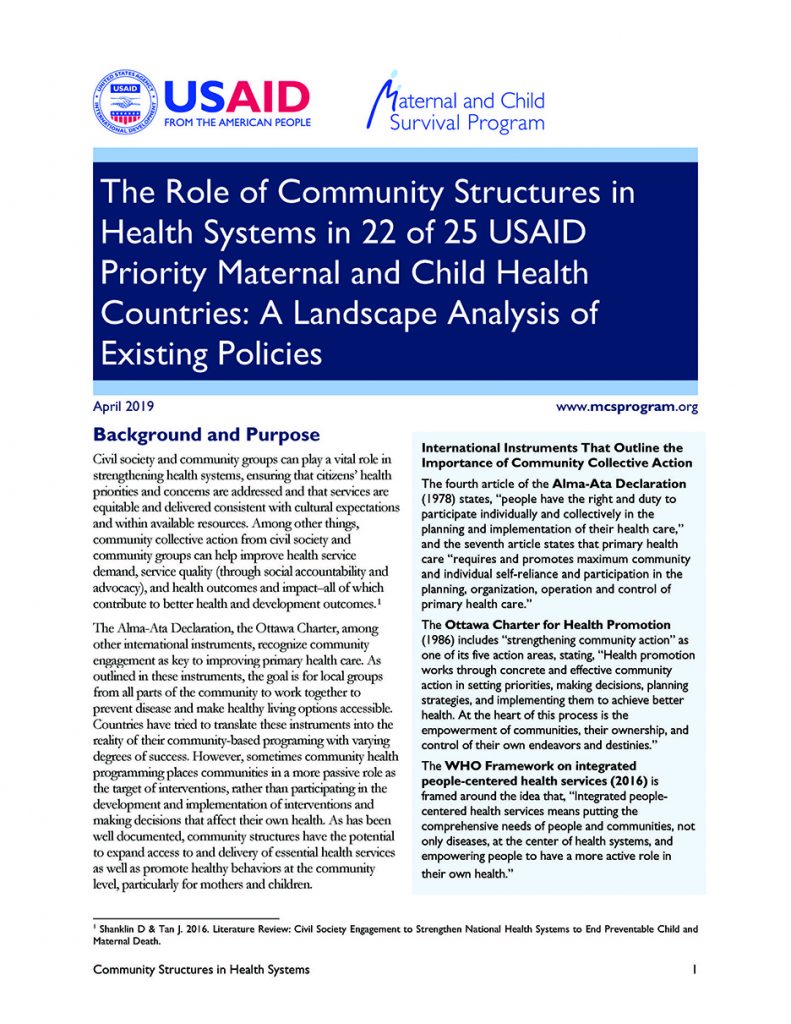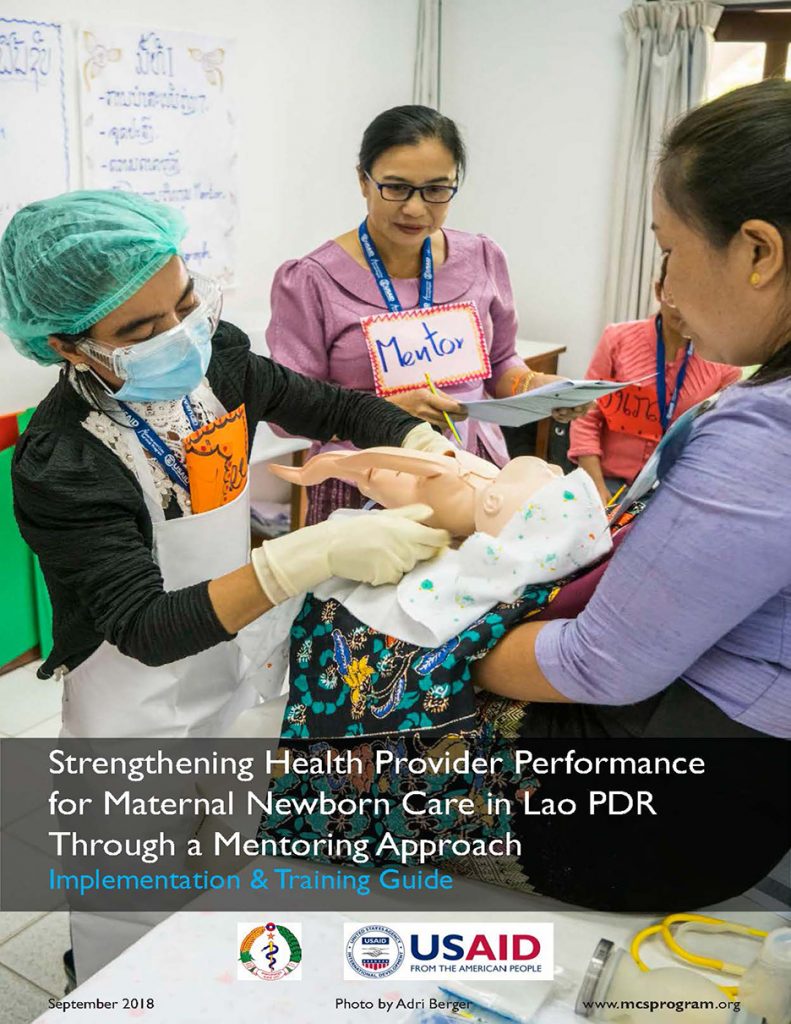
The mentorship approach was developed to facilitate the transfer of skills and further improve the quality of care at the time of birth, focusing on mother and newborn. As part of the SCI Primary Health Program, mentoring leverages an integrated health systems strengthening approach. The mentorship and Essential Early Newborn Care (EENC) approaches are similar […]
Read More…
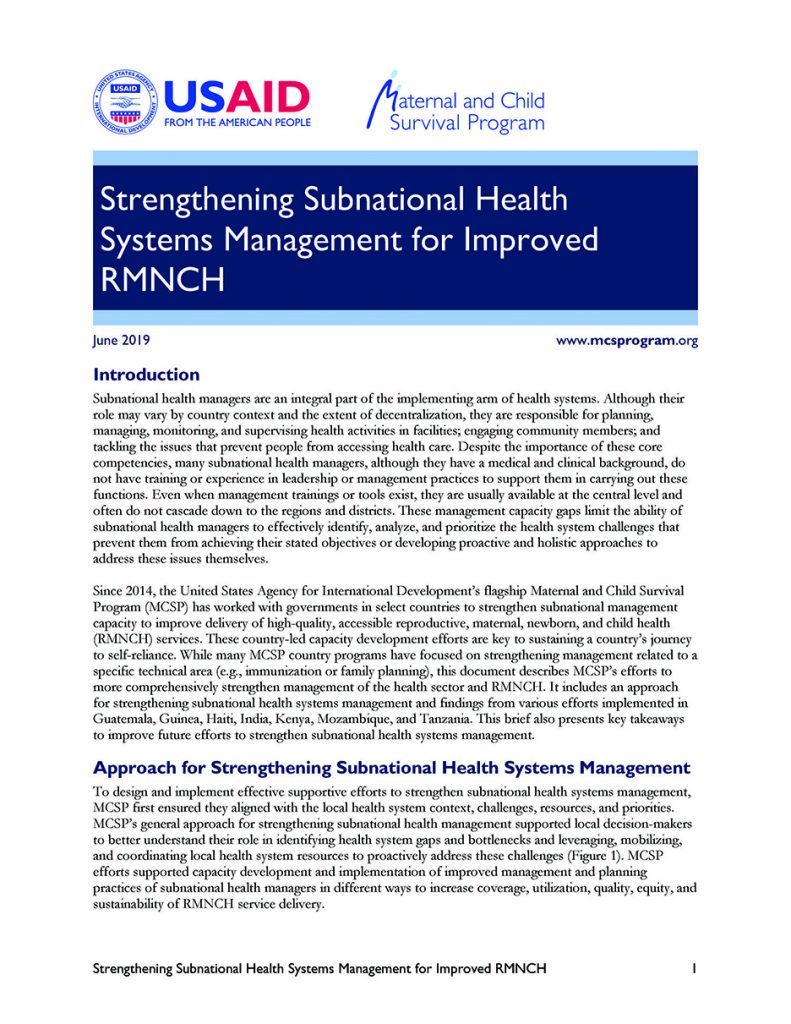
This brief describes MCSP’s efforts to more comprehensively strengthen management of the health sector and reproductive, maternal, newborn and child health (RMNCH). It includes an approach for strengthening subnational health systems management and findings from various efforts implemented in Guatemala, Guinea, Haiti, India, Kenya, Mozambique and Tanzania. It also presents key takeaways to improve future […]
Read More…
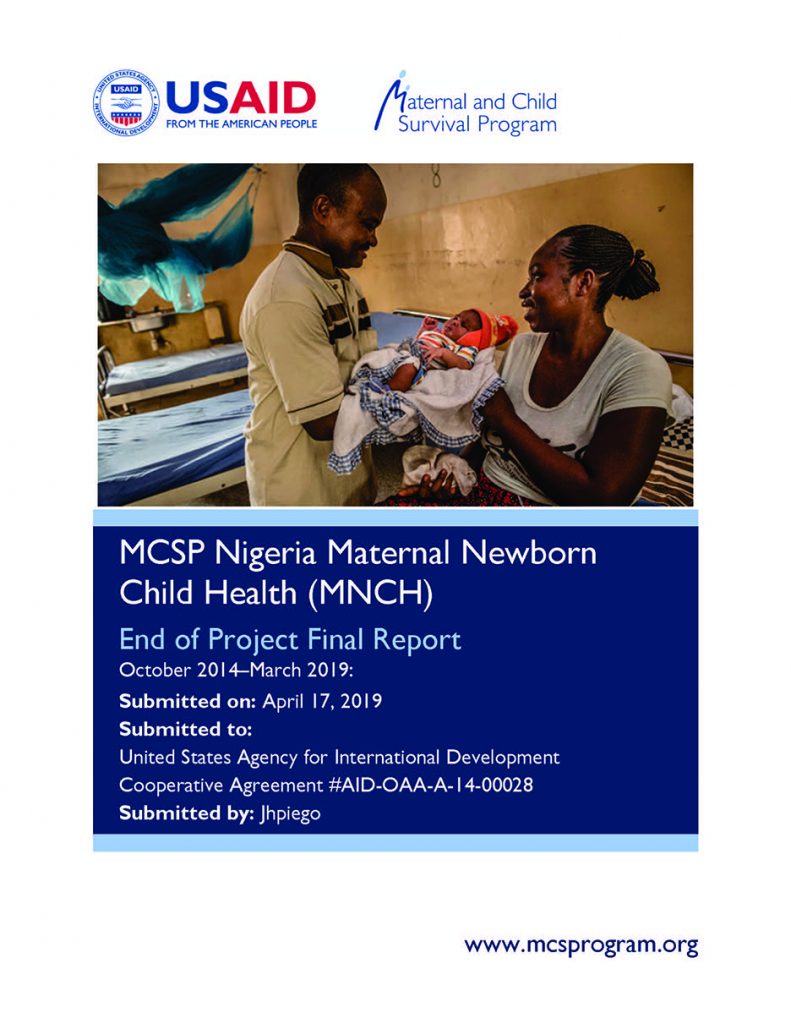
MCSP in Nigeria was to contribute to the reduction of maternal, newborn, and child mortality by improving the quality and use of maternal, newborn, and child health interventions in Ebonyi and Kogi states. Over a period of 4 years, MCSP worked with several key stakeholders within and outside Nigeria to plan and implement a wide […]
Read More…
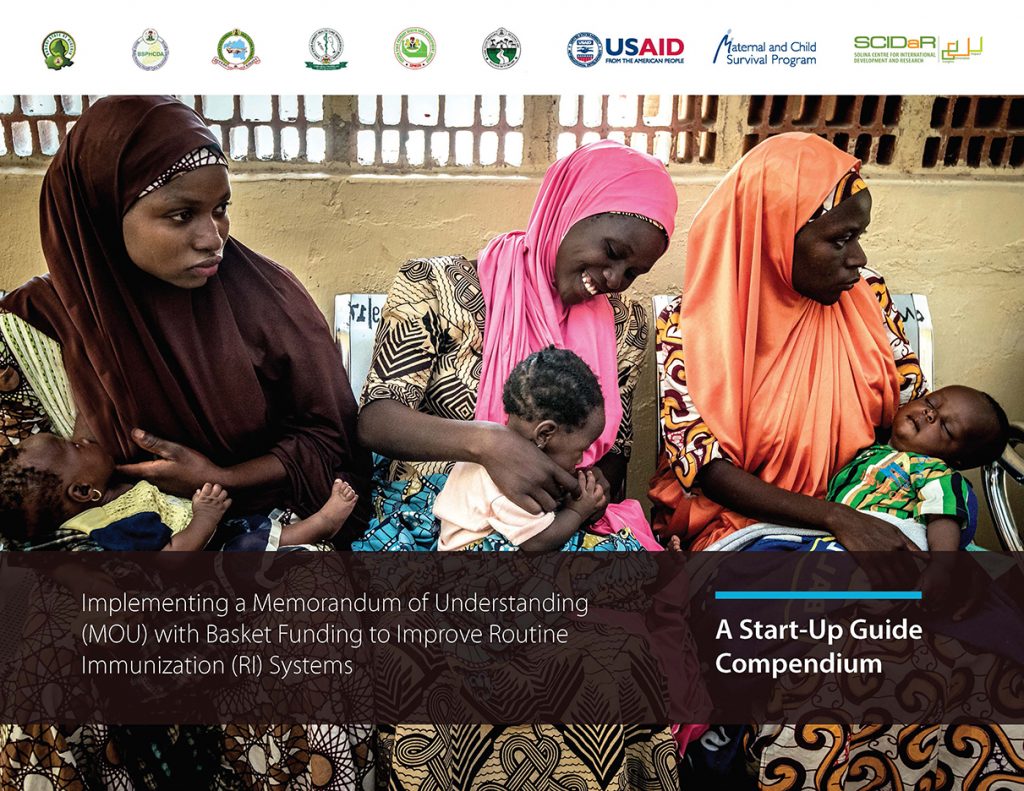
This compendium provides a brief overview of the steps in designing, implementing, monitoring, and sustainably transitioning a memorandum of understanding (MOU) partnership for routine immunization (RI) strengthening. The steps, lessons learned, and recommendations it contains come from the implementation of government-led RI MOU partnerships in six states in northern Nigeria: Bauchi, Borno, Kaduna, Kano, Sokoto, […]
Read More…
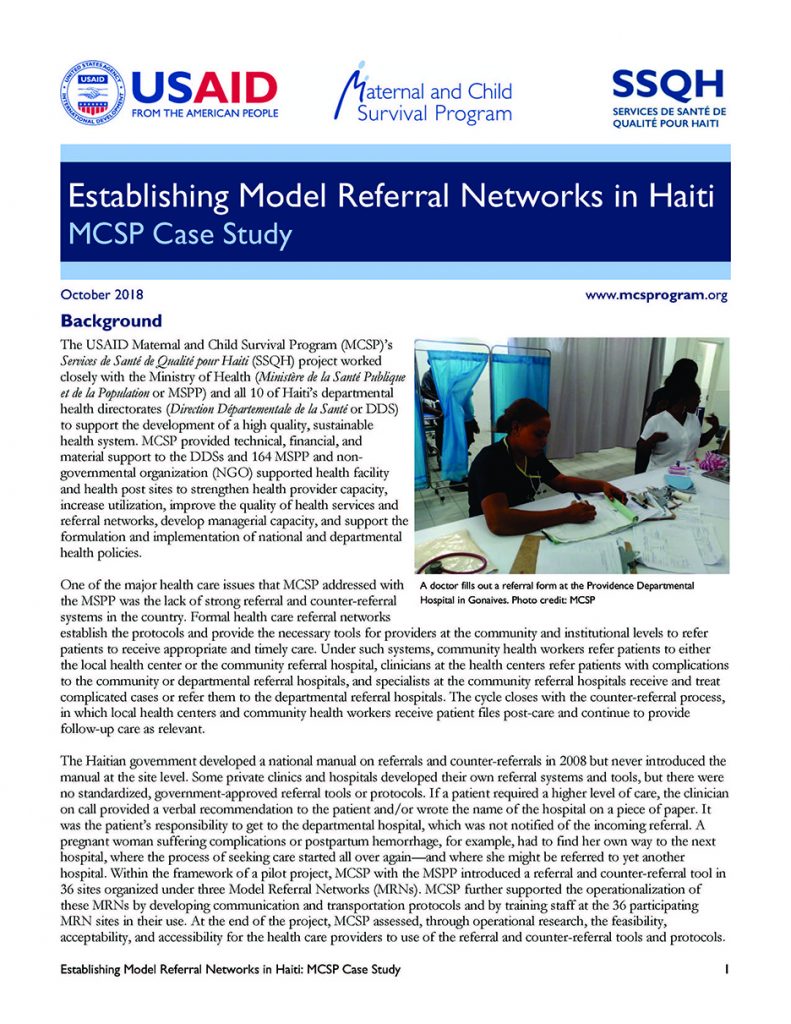
MCSP with the Ministry of Health introduced a referral and counter-referral tool in 36 sites organized under three Model Referral Networks (MRNs). MCSP further supported the operationalization of these MRNs by developing communication and transportation protocols and by training staff at the 36 participating MRN sites in their use. At the end of the project, […]
Read More…
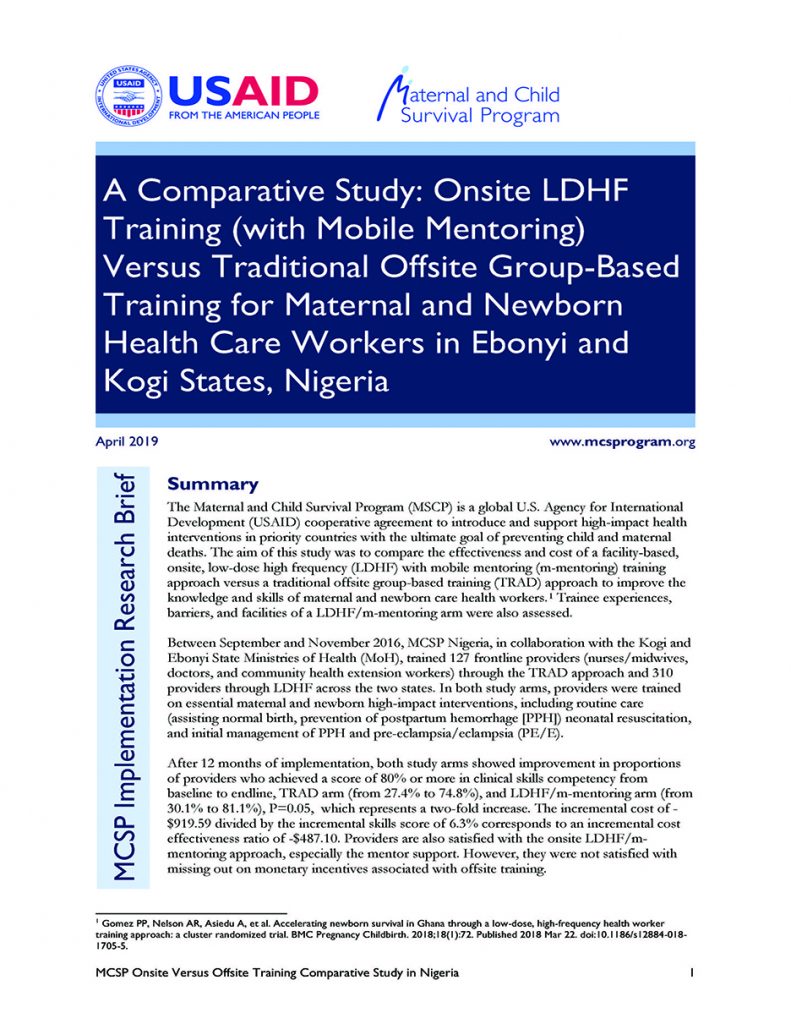
The study findings support the recommendation that the Kogi and Ebonyi State Ministries of Health should consider shifting from traditional offsite to onsite in-service training using the low-dose high frequency/m-mentoring approach to improve clinical competency and skills retention of providers. This shift would reduce the time health workers spend away from their work stations to […]
Read More…
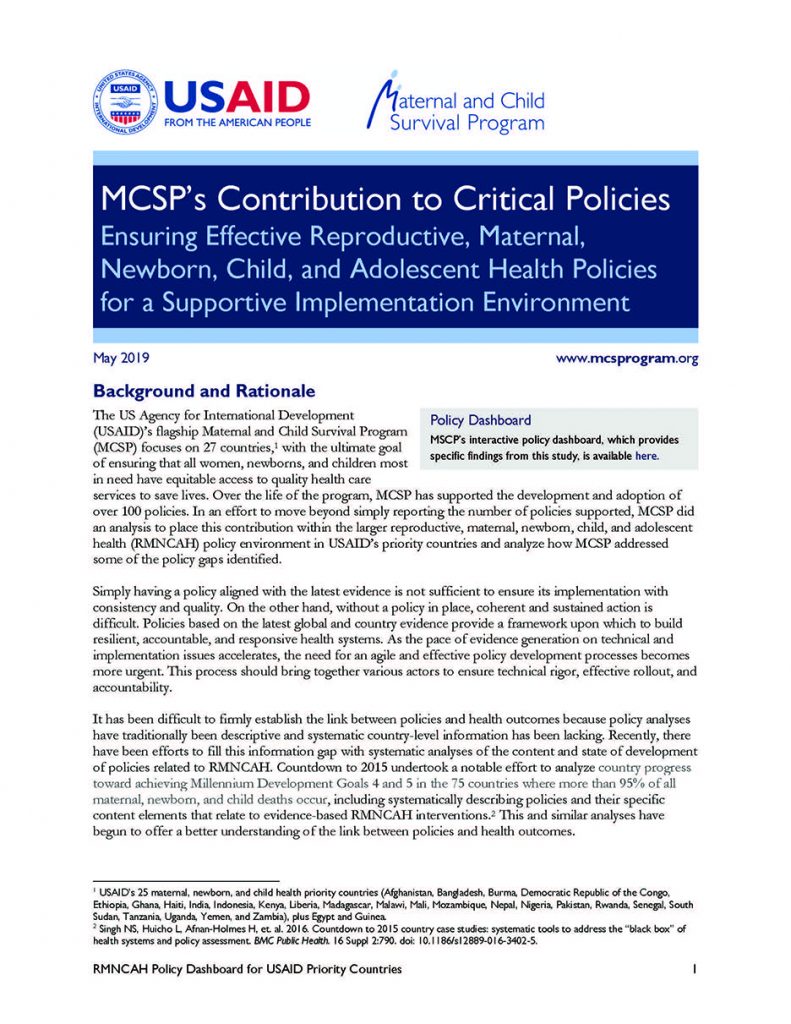
Over the life of the program, MCSP has supported the development and adoption of over 100 policies. In an effort to move beyond simply reporting the number of policies supported, MCSP did an analysis to place this contribution within the larger reproductive, maternal, newborn, child, and adolescent health (RMNCAH) policy environment in USAID’s priority countries […]
Read More…
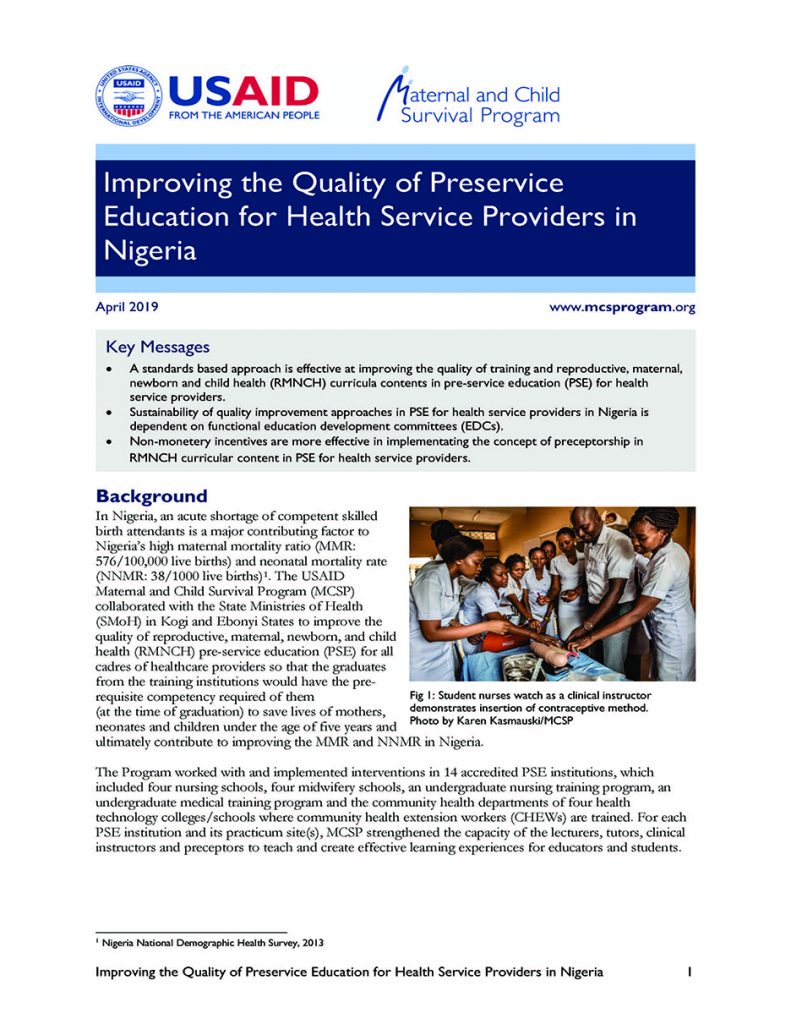
MCSP worked with and implemented interventions in 14 accredited pre-service education (PSE) institutions, which included four nursing schools, four midwifery schools, an undergraduate nursing training program, an undergraduate medical training program and the community health departments of four health technology colleges/schools where community health extension workers (CHEWs) are trained. For each PSE institution and its […]
Read More…
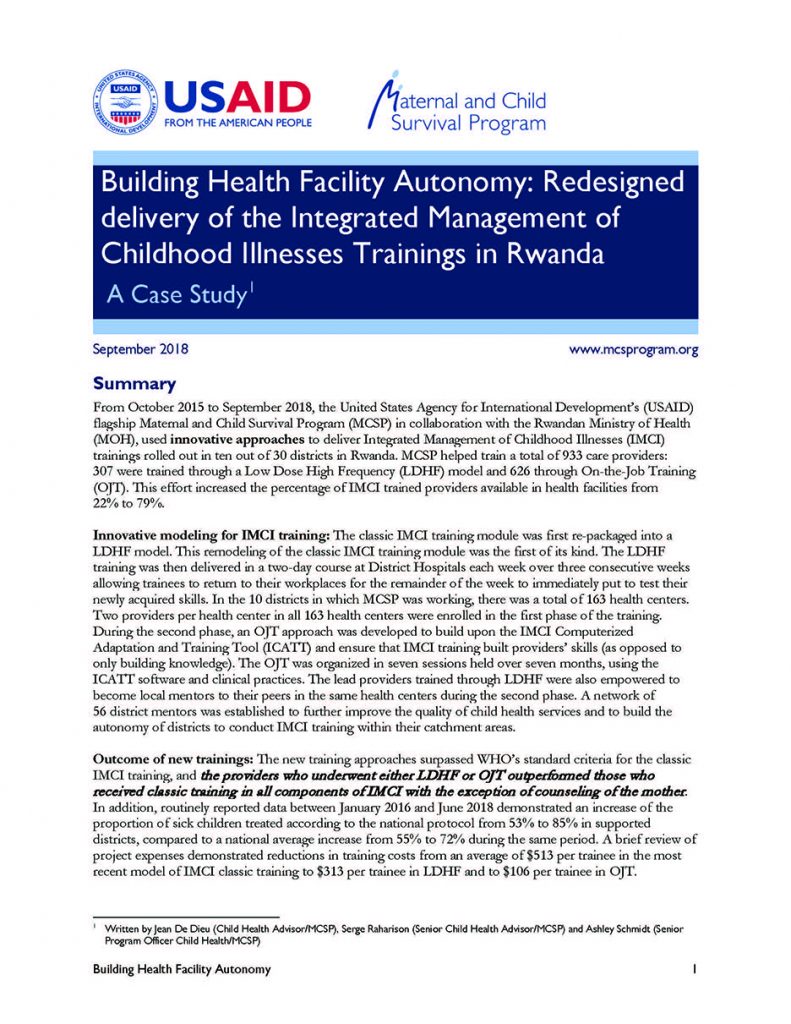
From October 2015 to September 2018, MCSP in collaboration with the Rwandan Ministry of Health (MOH), used innovative approaches to deliver Integrated Management of Childhood Illnesses (IMCI) trainings rolled out in ten out of 30 districts in Rwanda. MCSP helped train a total of 933 care providers: 307 were trained through a Low Dose High […]
Read More…





